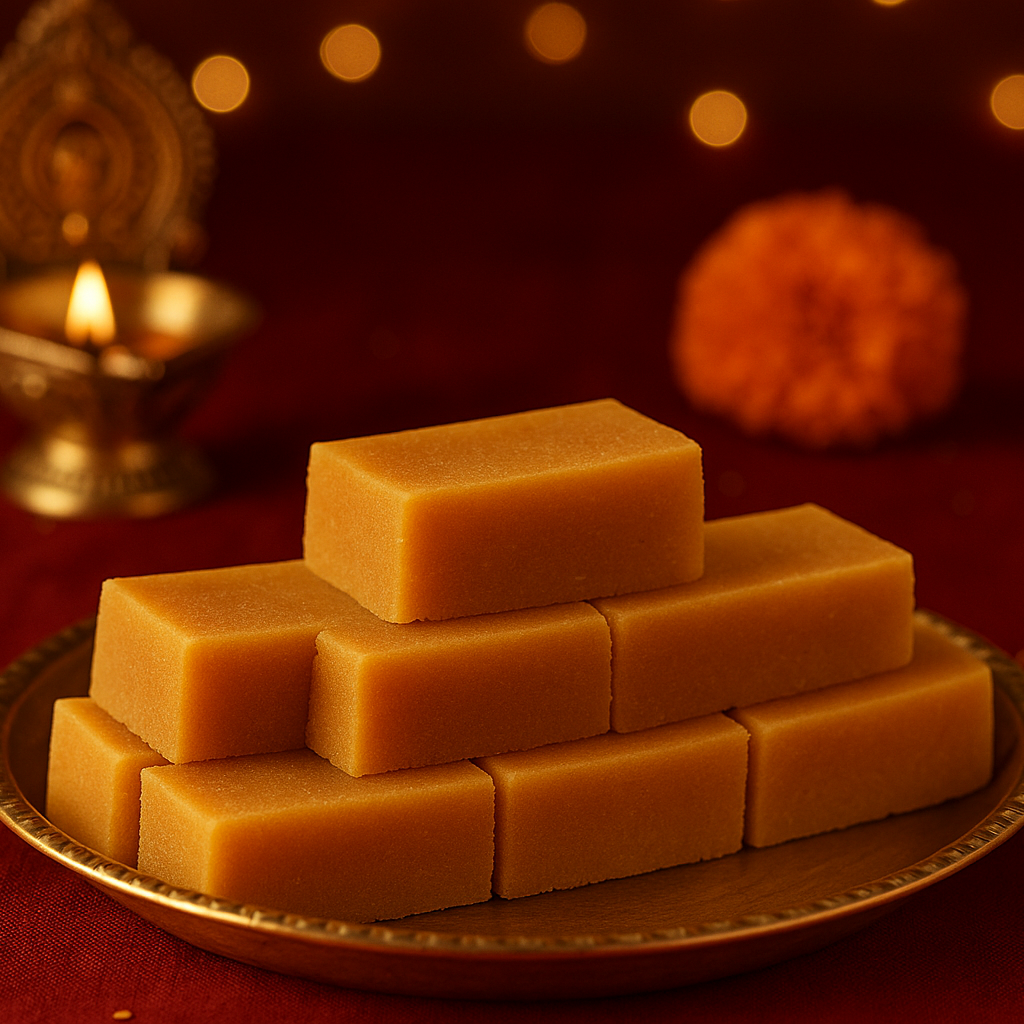How to Stay Hydrated with No Sugar Drinks in Just 5 Easy Steps
Staying hydrated is essential for managing diabetes, but it can be challenging to find the right drinks. Your body needs enough fluids to keep blood sugar levels stable, support kidney function, and prevent dehydration - a condition that can be especially dangerous for people with diabetes.
Many popular beverages contain hidden sugars that can cause blood glucose levels to spike. The good news? There are plenty of delicious, sugar-free beverages out there to keep you refreshed and healthy.
Key benefits of choosing no-sugar drinks:
- Helps maintain steady blood sugar levels
- Supports weight management goals
- Reduces risk of diabetes complications
- Provides essential hydration without unwanted calories
The secret is knowing which drinks are best for your body. From naturally flavored water to unsweetened teas, there are many options that are both satisfying and good for you. In this article, we'll share five simple steps you can take to improve your hydration habits while keeping your blood sugar in check.
Ready to discover your new favorite sugar-free beverages? These practical strategies will help you stay refreshed without compromising your health goals.
1. Choose Water as Your Primary Beverage
Water is the best choice for people with diabetes when it comes to staying hydrated. It's calorie-free, sugar-free, and helps keep your blood sugar levels steady while also supporting your body's important functions.
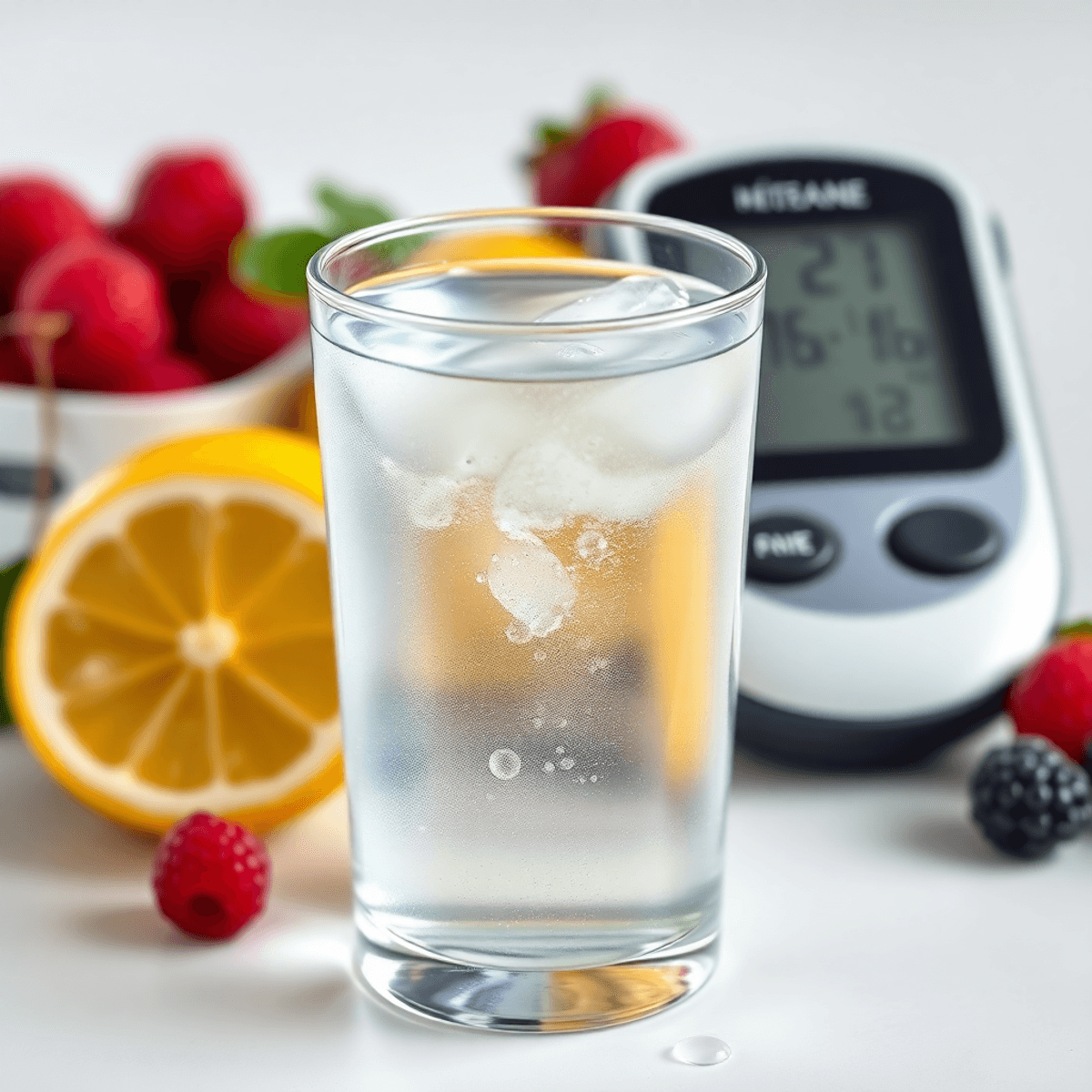
Why Water is Great for Managing Blood Sugar:
- It helps get rid of extra sugar through urine
- It stops dehydration from causing blood sugar spikes
- It reduces false hunger signals that can lead to overeating
Your body takes in pure water directly into your bloodstream without having to process it, making it the best way to hydrate. This quick absorption helps maintain healthy blood volume and supports kidney function - both of which are crucial for managing diabetes.
Creative Ways to Make Water More Exciting:
- Add fresh cucumber slices and mint leaves
- Infuse with citrus fruits like lemon, lime, or orange
- Drop in a few berries for natural sweetness
- Try herbs like rosemary or basil for unique flavors
Pro tip: Keep a reusable water bottle filled and visible throughout your day. Studies show people drink up to 25% more water when it's readily accessible.
In addition to staying hydrated, incorporating fiber-rich foods into your diet can significantly aid in managing diabetes. These foods not only help regulate blood sugar levels but also provide a feeling of fullness, reducing the chances of overeating.
Lastly, don't forget to explore some delicious options from our best-selling range that include cakes, cookies, chocolates and more which can be enjoyed in moderation while keeping your health in check.
2. Incorporate Unsweetened Teas and Coffees into Your Routine
Tea and coffee offer excellent alternatives to sugary drinks while providing potential health benefits for blood sugar management. Green tea contains powerful antioxidants called catechins that may improve insulin sensitivity and reduce blood sugar levels.
Diabetic-Friendly Tea Options:
- Green tea - rich in metabolism-boosting compounds
- Chamomile tea - supports better sleep and stress reduction
- Ginger tea - aids digestion and reduces inflammation
- Cinnamon tea - may help stabilize blood sugar levels
- Peppermint tea - refreshing and caffeine-free
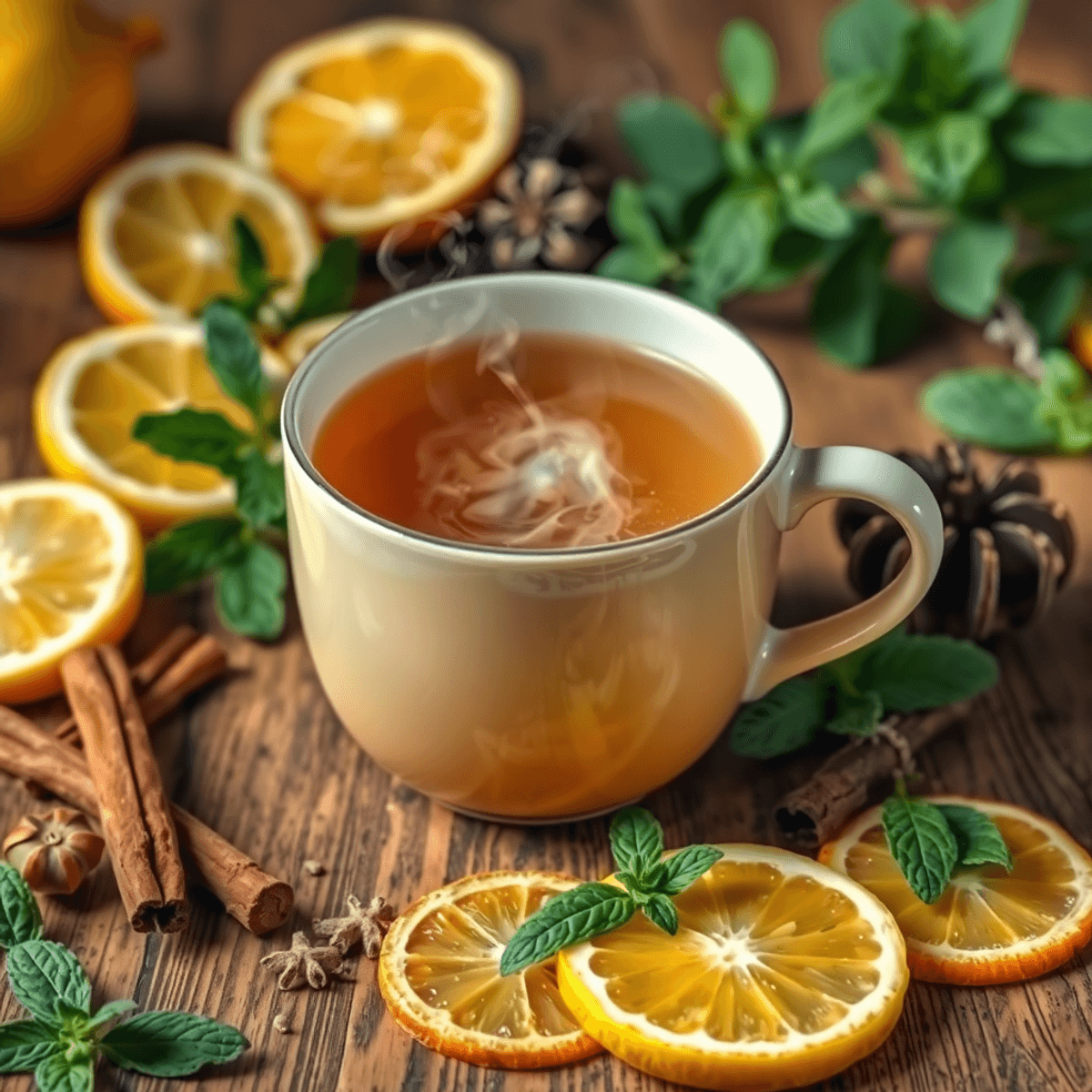
When preparing your hot beverages, skip the sugar and try these alternatives:
- Add a slice of lemon or orange
- Use a sprinkle of cinnamon or nutmeg
- Try stevia or monk fruit sweetener if needed
- Experiment with vanilla extract for natural sweetness
Black coffee contains zero carbohydrates and may improve glucose metabolism. Research suggests regular coffee consumption could reduce type 2 diabetes risk by up to 50%. Remember to drink your coffee black or with unsweetened plant-based milk to maintain its blood sugar-friendly benefits.
3. Opt for Low-Carb Vegetable Juices and Explore Zero Sugar Juice Options
Vegetable juices offer a refreshing alternative to fruit-based beverages while keeping blood sugar levels stable. Fresh cucumber, celery, and spinach juices contain minimal carbohydrates and pack essential nutrients like potassium and vitamin C. These non-starchy vegetables are ideal for juicing.
Creating Your Own Low-Carb Juice Blends:
- Mix leafy greens with cucumber for a hydrating base
- Add small amounts of lemon or lime for natural flavor
- Include herbs like mint or basil for complexity
- Blend in a single carrot or beet for sweetness without sugar spikes
For those looking to explore healthier sweetener alternatives, it's worth considering options like monk fruit, although it's essential to note that it still contains sugar.
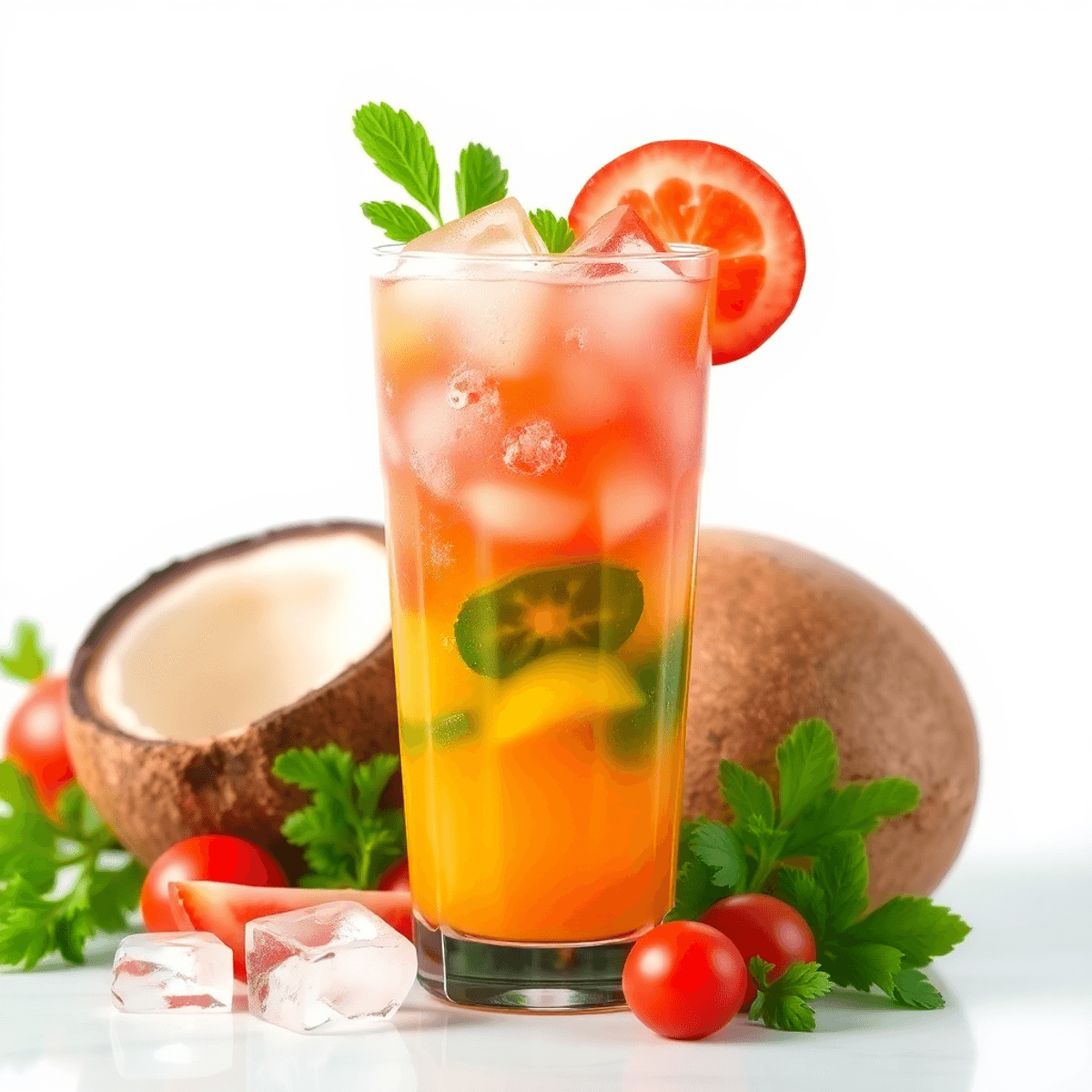
Smart Dilution Techniques:
- Mix vegetable juice with sparkling water (1:1 ratio)
- Add ice cubes to reduce concentration
- Combine with unsweetened coconut water
When buying commercial vegetable juices, check labels for hidden sugars under names like corn syrup, fruit juice concentrate, or dextrose. Choose options with less than 5g of carbohydrates per serving for optimal blood sugar management.
Also, consider exploring sugar-free products as they have become more popular recently due to growing health concerns about sugar. However, it's crucial to remember that not all sugar-free products are necessarily healthier than their regular counterparts.
In addition to vegetable juices, incorporating low-carb foods into your diet can also be beneficial. This approach not only aids in weight management but also contributes to better blood sugar control.
Lastly, if you're craving something sweet but want to avoid sugar, you might want to try some delicious sugar-free Motichoor Ladoo, a traditional Indian sweet made with pure ghee and no added sugar.
4. Select Sugar-Free Energy Drinks and Soft Drinks with Caution, If Needed
Sugar-free energy drinks and soft drinks might seem like perfect alternatives, but they require careful consideration. These beverages often contain artificial sweeteners and high caffeine levels that can impact your health:
Sugar-Free Energy Drinks - Key Concerns:
- Excessive caffeine content can raise blood pressure
- Artificial sweeteners may alter gut bacteria
- Some brands contain high sodium levels
- Risk of developing caffeine dependency
Diet Sodas - What Research Shows:
- Links to increased waist circumference
- Potential changes in insulin sensitivity
- Risk of bone density reduction
- Dental enamel erosion from acidic content
For occasional consumption, opt for brands with natural sweeteners like stevia, which has been shown to have fewer adverse effects compared to other artificial sweeteners. Read labels carefully - some sugar-free beverages contain hidden carbs or concerning additives. Limit intake to one serving per day, and consider timing your consumption away from meals to minimize potential metabolic effects.
5. Use Milk Alternatives and Green Smoothies Smartly in Your Diet
Plant-based milk alternatives offer diabetic-friendly hydration options. Unsweetened almond milk contains just 30 calories per cup with zero sugar, making it an excellent choice for blood sugar management. You can even enjoy delicious almond flour keto cookies as a snack which are made with 100% almond flour and sweetened with low GI stevia, making them diabetic-friendly. Soy milk provides 7 grams of protein per serving, helping maintain stable glucose levels while keeping you satisfied.
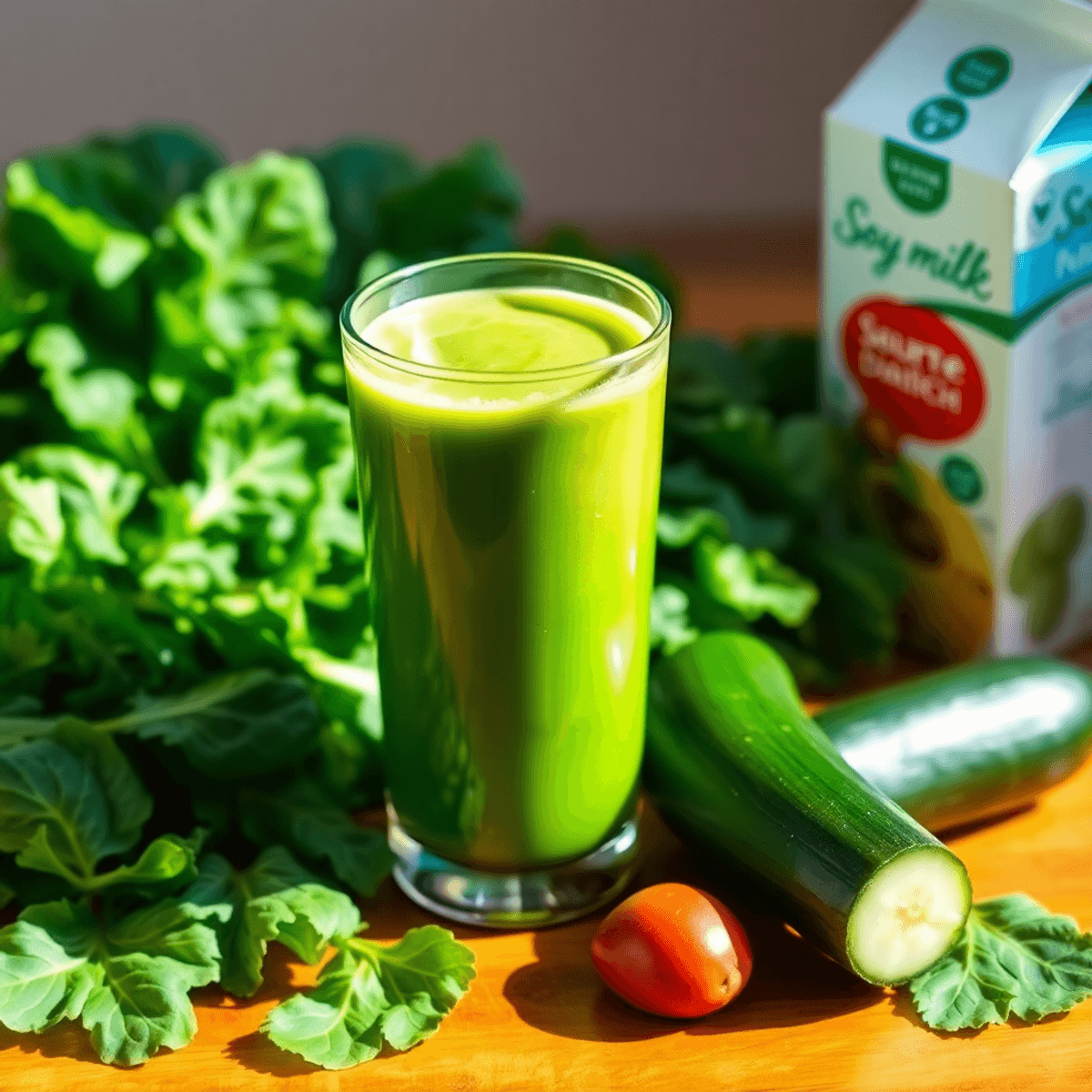
Green smoothies create nutrient-rich hydration when prepared thoughtfully:
- Blend leafy greens like spinach or kale with cucumber for a low-sugar base
- Add protein powder or chia seeds to slow sugar absorption
- Include healthy fats from avocado to enhance nutrient absorption
- Mix in berries sparingly for natural sweetness without sugar spikes
Pro tip: Check labels carefully - some milk alternatives contain hidden sugars or carrageenan, which may cause inflammation. Opt for brands specifically labeled "unsweetened" to ensure zero added sugars.
Additional Hydration Tips for Diabetics: Beyond No Sugar Drinks
Enhance your hydration routine with these creative sugar-free options:
Natural Flavor Infusions
- Fresh mint leaves + cucumber slices
- Rosemary sprigs + grapefruit wedges
- Basil leaves + strawberry pieces
- Cinnamon sticks + apple slices
Sports Drink Guidelines
- For light exercise (<1 hour): Water is sufficient
- For intense workouts (>1 hour): Sugar-free electrolyte drinks
- Check with your healthcare provider for personalized recommendations based on:
- Exercise intensity
- Blood sugar patterns
- Individual hydration needs
Pro tip: Create ice cubes with herbs or fruit pieces to add subtle flavor as they melt. This method provides a refreshing taste without impacting blood sugar levels.
Cautions on Certain Beverages and Alcohol Consumption for Diabetics
Alcohol poses specific risks for people with diabetes. The American Diabetes Association recommends limiting alcohol to:
- Women: 1 drink per day
- Men: 2 drinks per day
Key alcohol-related risks:
- Blocks liver's glucose production
- Masks hypoglycemia symptoms
- Interferes with diabetes medications
- Increases blood pressure
Beverages to approach with caution:
- Mixed cocktails with sugary mixers
- Sweet wines and liqueurs
- Craft beers high in carbohydrates
- Frozen alcoholic drinks
Your safest alcohol options include:
- Dry wines
- Light beers
- Clear spirits with sugar-free mixers
Remember to check blood sugar levels before, during, and after drinking alcohol. Never drink on an empty stomach - pair alcoholic beverages with food to help stabilize blood sugar levels.
Disclaimer:Always drink responsibly and be mindful of how alcohol can affect your blood sugar levels, especially when taking diabetes medications. It's crucial to monitor your blood sugar regularly and avoid drinking on an empty stomach to prevent any potential complications.
In this regard, opting for sugar-free alternatives like our Keto-friendly Almond Cake or sugar-free coconut cookies can be beneficial. These diabetic-friendly options are not only delicious but also help in maintaining stable blood sugar levels while enjoying a treat.
Conclusion
Staying hydrated with sugar-free beverages doesn't mean sacrificing taste or variety. Your journey to better hydration starts with making informed choices that support your blood sugar management goals.
Artinci offers a range of diabetic-friendly beverage options tailored to your needs. Our selection includes carefully curated products that align with the hydration strategies discussed in this guide.
Ready to take the next step? Connect with healthcare professionals through Artinci's platform for personalized hydration advice. Our experts can help create a beverage plan that fits your lifestyle and dietary requirements.
Remember: The right hydration choices empower you to maintain optimal blood sugar levels while enjoying refreshing drinks throughout your day.
And if you're looking for some sweet treats, we also have a range of sugar-free diabetic-friendly sweets that are crafted to keep in mind your overall health.
FAQs
1.What are the best sugar-free beverages for diabetics to stay hydrated?
The best sugar-free beverages for diabetics include water, unsweetened teas and coffees, low-carb vegetable juices, zero sugar juice options, and certain milk alternatives like unsweetened almond or soy milk. These drinks help maintain hydration without impacting blood sugar levels.
2.Why is water considered the best sugar-free beverage for diabetics?
Water naturally hydrates the body without affecting blood sugar levels or adding calories. It supports blood sugar control and weight management, making it the ideal primary beverage for diabetics. Enhancing water with natural flavors like lemon or cucumber can make it more enjoyable.
3.Can diabetics drink unsweetened teas and coffees safely?
Yes, unsweetened teas and coffees are excellent sugar-free options for diabetics. Herbal teas and green tea offer health benefits related to blood sugar regulation. Sweeteners should be used sparingly if needed to keep drinks sugar-free.
4.Are vegetable juices better than fruit juices for diabetics?
Yes, low-carb vegetable juices are preferable because they have lower carbohydrate content compared to fruit juices, reducing the impact on blood sugar. Diluting juices can further decrease their sugar effect. Zero sugar juice brands or homemade recipes are good alternatives.
5.Should diabetics consume sugar-free energy drinks and soft drinks?
Sugar-free energy drinks and diet sodas should be consumed with caution. Although they contain no sugar, some may pose metabolic health risks. It's important to weigh the benefits and drawbacks before including them in a diabetic diet.


